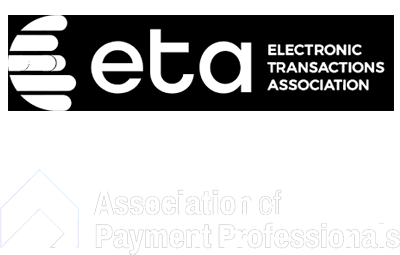08 Mar

Technology in modern society has revolutionized various industries. The banking sector has expanded significantly due to technological growth and development. With the digitization of banking and other financial services, you can efficiently perform most financial-related activities from the comfort of your home. However, despite the convenience and flexibility that online financial services offer, they also promote negative aspects such as identity theft and fraud. The focus on security when it comes to online transactions is a top priority for most people especially due to the increase in cybercrime. Therefore, to protect yourself from fraud and data theft, here are the best practices for processing payments online in 2023.
Match the IP and Billing Address Information
When processing payments online, you have to be keen on checking transaction details. Looking at the details can help you determine whether a transaction is fraudulent, thereby protecting yourself from falling prey to fraudsters. There are various services one can access online that help you determine whether a client is a cardholder to help in weeding out imposters and fraudsters. However, you must perform your due diligence by continuously checking this information to determine the authenticity of the payment process and the client. Seeking information and ideas about Ip and billing addresses is important for you as an online merchant as it helps you learn how to catch fraudsters before they take off with your cash.
Encrypt Data
When using online financial services, there is always the risk of getting hacked or identity theft since you share a lot of private information online. However, it is vital to always use transport layer security and secure sockets layer security protocols. SSL and TLS protocols help protect sensitive data from falling into the wrong hands through data encryption, ensuring the intended parties can only access the information. As such, for the safe processing of payment online, you should have significant knowledge of these safety protocols to help you safeguard your money and private data.
Incorporate strong passwords
One of the most essential aspects of online financial services is having strong passwords that cybercriminals cannot easily decipher. Most people use weak passwords such as names, birthdays, random numbers, etc. However, with the development of technology, cybercriminals have also improved their fraud tactics, making it easier to crack simple passwords. Your money and information will be safer if you utilize strong passwords by using combinations of letters, numbers, and special characters. Most online banking sites will require you to set strong passwords to protect against fraud. Still, you also must ensure it is a password you can easily remember to avoid getting locked out of your account.
Implement 3D Secure
Another vital strategy to securely process payments in 2023 is 3D security. This authentication strategy prevents unauthorized use of credit and debit cards. It protects merchants from chargebacks that may result from fraudulent business transactions. E-business merchants and financial institutions share information to help distinguish authentic transactions from fraudulent activities. The 3D secure method is an efficient strategy to support this information exchange between financial institutions and merchants to safeguard people from thieves and fraudsters looking to take advantage of internet anonymity.
Request the CVV
At the back of every credit or debit card, there is a particular number that the financial institutions provide that is meant to help merchants identify whether the information provided is stolen or not. Since most fraudsters tend to steal information online, they can easily be caught by asking them to provide information present on the actual card. Therefore, the Card Verification Value (CVV) is vital because it helps validate the card, not present transactions via smartphones, computers, and tablets. Once you discover the client you are dealing with does not have the card with them, this is a huge red flag, and you can stop the transaction early before you lose money.
Use Strong Customer Authentication (SCA)
With the increase in fraudulent activities nowadays on all online platforms, security is essential for online payments. Another important strategy to implement when trying to authenticate payment online is Strong Customer Authentication (SCA). This strategy asks users for two or more unique elements that can help authenticate their identities. Some of these elements include;
• Passwords or Pin
• A badge or Smartphone
• Fingerprints
• Voice or facial recognition
Continuous Monitoring of Fraudulent Activities
While there are a lot of strategies one can use to monitor fraud when it comes to e-business, fraudsters usually develop their skills and knowledge by trying to find ways to bypass all security protocols and methods. Aside from using these security measures, you must continuously monitor your online platforms for any sign of fraud. One way to achieve this is through built-in fraud monitoring systems, which help identify risk areas in advance so that you take the appropriate precautions. Being vigilant when it comes to detecting fraud is an essential preventive element that you have to embrace as a way to safeguard your money and information from cybercriminals.
Train Employees
Suppose you have a group of people working for you in your e-business. In that case, it is essential to ensure you train them effectively on how to deal with online transactions. Your employees should have the knowledge and skills to identify authentic transactions and weed out fraudulent ones. You also need to ensure your employees are always keeping up with the trends in cybersecurity so that they can be well-informed on new fraud trends and help you avoid them even when you are not around.
Today’s business has become more lucrative online. More people flock to online platforms to purchase and sell commodities and services. However, fraudsters and cyber criminals are taking advantage of the anonymity that comes with the internet to steal information and money from unsuspecting clients. As such, when it comes to online payments, extra caution is required to ensure fraudsters are stopped from accessing sensitive data and using it to gain access to your money or even blackmail you. With the proper strategies and approaches outlined above, you will need help to get dupped or lose your hard-earned cash.






